The Word for World is Forest: Writers Rebel Workshop
Photo by Sebastian Unrau on Unsplash 5 June 2021, online At Writers Rebel, we believe it's time to write new stories, and find new ways of telling them. But how to begin? Well, we believe it's important that writers get together, to exchange ideas and experiences, to learn from one another. To that end, we've organised The Word for World is Forest – a full day of masterclasses and writing workshops with four acclaimed writers. Each will give a unique and compelling vision of alternatives to conventional narratives. In his masterclass, novelist and CCL member Toby Litt will offer alternatives to the dominant screenwriting model of the Hero's Journey, while Laline Paull, acclaimed author of The Bees, will explore the radical empathy of writing from the non-human mind. Mythology, water, and rebellion are the starting-points for writer Charlotte Du Cann, from the ground-breaking Dark Mountain Project. And award-winning poet Dom Bury will dig deep into how our bodies and emotions can feed into verse. All this is taking place online, on June 5th 2021. You can book here...
Activism and Resistance: LSFRC Conference
Artwork by Thomas Johnson. 9-11 September 2021, online Keynote Speakers: Grace Dillon, Radha D'Souza Guest Creators: Jeannette Ng, Rivers Solomon, Neon Yang In an age when Me Too, Black Lives Matter, Decolonise the Curriculum, Refugees Welcome, and movements for global solidarity with oppressed populations have become part of mainstream discourse, it is vital to re-examine the relationship between activism, resistance and the mass imagination vis-a-vis science fiction. As a genre dedicated to imagining alternatives, science fiction is an inherently radical space which allows for diverse explorations of dissent. It is, also, a space that has been rightfully critiqued for its historic inequities favouring white cishet men (as recently addressed by Jeanette Ng during the 2019 Hugo Awards among others). There needs to be reckoning with how precarious bodies engage in activism and resistance in the context of their material realities and restrictions. Therefore, we must deny universalising a single experience as “radical enough” and instead acknowledge how communities in the margins – queer, trans, disabled, neurodivergent, BIPOC, immigrants and refugees, religious minorities, indigenous populations, casualised workers, the homeless and unemployed – have specific ways of subverting and undermining the system, as well as specific stakes and reasons to do so. It is imperative to not only revisit how science fiction has been a space for activism and resistance, but also resist and challenge the genre’s shortcomings. For our 2021 conference, the LSFRC welcomes submissions that explore the theme of “Activism and Resistance.” We recognise the urgency of this theme and the broad ways in which it can be interpreted and applied. We welcome contributions that explore SF as the site of activism and resistance, critical reflections of activism and resistance against SF’s tradition so far, and broader contributions on the topics of activism and resistance. We are especially keen to welcome practitioners, activists, change-makers and dissidents who are working to create a more equitable world. We do not adhere to strict reading of the term SF; instead, we encourage a widening of the genre to highlight and uplift different voices and perspectives. We invite proposals for papers, panels, workshops, protest and disruption sessions, performances, installations, and creative responses to the theme, and we would like to actively encourage alternative and innovative forms of presentation and engagement. We are aware that academic conferences often have barriers to access and if you have any specific concerns, please do reach out, especially as the online format carries its own challenges (and benefits). We hope we can alleviate some of these concerns with the reassurance that paying for registration is...
Decolonizing the University
Invited Lecture by Dr Daniel Hartley (Durham University) 26 May 2021, 6-7.30pm BST online (booking required) We will be joined by Dr Daniel Hartley (Durham University) for a research lecture and discussion. Titled “From Aesthetic Education to Anti-Imperial Literacy: On the Early Marx, Raymond Williams, and Decolonizing the University,” Dr Hartley’s talk will begin with a close reading of key passages from Marx’s 1844 Manuscripts, identifying a logic of aesthetic education that also informed Marx’s early theory of revolution, traces of which can still be found in the Grundrisse and Capital. In particular, it holds that for Marx the unfolding and / or redistribution of objective wealth is a necessary but insufficient condition for communism; it must be accompanied by a process of mass education that develops the subjective capacities necessary for the non-alienated appropriation and enjoyment of new objects. The second part of the talk then turns to a little-studied presidential address to the Classical Association given by Raymond Williams in 1984, entitled “Writing, Speech and the ‘Classical.’” This address develops a theory of anti-imperial literacy that will be read as a nuanced and detailed example of the process of aesthetic education implicit in Marx’s 1844 Manuscripts. The talk will then conclude with some brief reflections on the ways in which Marxist, cultural materialist frameworks might contribute to contemporary debates on decolonizing the university, whilst provisionally connecting those debates to a somewhat alternative historical and theoretical trajectory. This talk has developed out of two of Dr Hartley's recent publications – "The aesthetics of non-objectivity: From the worker’s two bodies to cultural revolution" in the Italian Journal of Aesthetics (2021) and "Anti-Imperial Literacy, the Humanities, and Universality in Raymond Williams’s Late Work" in Raymond Williams at 100, ed. Paul Stasi (2021). Speaker Bio: Dr Daniel Hartley is Assistant Professor in World Literatures in English at Durham University. His research focuses on literary style, ‘world literature’ and the historical sociology of modernity. Daniel’s first book, The Politics of Style: Towards a Marxist Poetics (Brill: 2017), developed a systematic theory of literary style through an immanent critique of the work of Raymond Williams, Terry Eagleton and Fredric Jameson. Daniel has since continued to refine his thinking on style in articles for Poetics Today, The Oxford Encyclopedia of Literary Theory, and Textual Practice. You can visit our CCL YouTube channel to watch the recording of Dr Hartley's guest lecture and Q&A or preview below. Featured image by UCL Occupation under a CC BY-SA...
Birkbeck Alumni Directing New Plays
We're delighted to share some good news about recent Bikrbeck alumni from our MFA Theatre Directing, directed by Rob Swain, Professor of Theatre Practice. Lyndsey Turner, who graduated in 2007, is directing Dylan Thomas' Under Milk Wood at the Oilver Theatre in the National Theatre. The Covid-secure live performances will run from 16 June – 24 July 2021. Lyndsey was the first woman to win the Olivier award for Best Director and is an associate director of the National Theatre. Info here: https://www.nationaltheatre.org.uk/shows/under-milk-wood Atri Banerjee, who graduated in 2018 and won The Stage Debut award for Directing in 2019, is directing a new production of Harm at the Bush Theatre. This new play by Bruntwood Prize award winner Phoebe Eclair-Powell (WINK, Fury) and starring Kelly Gough (Broadchurch, Marcella), is a thrilling and razor-sharp twisted comedy on the corrosive effects of social media and isolation. Running from 17 May – 26 June 2021, Harm is made possible thanks to the support of the Government’s Culture Recovery Fund. Info here: https://www.bushtheatre.co.uk/event/harm/ Diane Page, who is a graduate of Birkecbk's BA Theatre Studies and completed the MFA Theatre Directing in 2019, is co-directing Out West with the Lyric Hammersmith Theatre's Artistic Director, Rachel O'Riordan. Out West comprises the world premiere of three new short plays by three of the UK’s leading playwrights – Tanika Gupta, Simon Stephens and Roy Williams and runs from 18 June – 24 July 2021. All rooted in West London, the plays explore race, identity and our sense of place and purpose, presented together as a triple bill. Info here: https://lyric.co.uk/shows/out-west/ Jonathan O'Boyle, who graduated in 2013 and won awards for his production of the musical The Last Five Years, is directing the musical this September as it transfers to West End, having been presented at Southwark Playhouse in 2019. It will run at the Vaudeville Theatre from 23 September 2021 for a limited season. The production at Southwark Playhouse was nominated for eight Offie Awards and won two for Best Director and Best Musical Production. Oli Higginson was nominated for a Stage Debut Award for his performance as Jamie. Info here: https://britishtheatre.com/the-last-five-years-transfers-vaudeville-theatre-23-september-2021/ Congratulations to all of our Birkbeck alumni and we hope that the new productions run smoothly amid Covid restrictions! For more information about Birkbeck's MFA Theatre Directing, please visit the programme's homepage. For more information about the Birkbeck Centre for Contemporary Theatre, please visit the centre's...
Radioastronomy (here comes the Sun)
‘Radioastronomy (here comes the Sun)’ Digital practitioner Inês Rebelo (Birkbeck) invites you to contribute to a new digital piece on our nearest star – the Sun. Where: online, submissions by email When: 12 May until 4 June 2021 ‘Radioastronomy (here comes the Sun)’ uses sound and drawing to evoke an encounter with our closest star. Capturing the Sun’s unheard voice from NASA’s recordings, these otherworldly tunes affect drawings over-layered in time. They remind us of our vital connection with the Sun and become alerts for climate emergency. As part of Birkbeck’s Arts Weeks 2021, ‘Radioastronomy (here comes the Sun)’ invites you to contribute to a new digital piece in the making titled ‘Sunscape’. This new piece takes the form of a collective screensaver where participants submit images to reflect on what we can do to slow down climate-warming caused by humans. 1 – Sun Look at the Sun (not with a naked eye!) Look at the Sun: it’s vital. Its gravity holds our planetary system together. Its energy brings heat, warmth, life in blooming crops, allows us to see in colours of rainbow and can burn to ashes, silently and invisibly. This much we know today: we know we can see the sun – in detail. But, can we hear the Sun? Are we really listening? Listen now. 2 – Emergency 2020 was not only Covid-19 year, it was also, yet again, one of the hottest years on record. Solar radiation levels fluctuate in cycles of eleven years each, going up and down, but the observed warming of past decades is too large to be caused by solar activity alone. Indeed, global scientific consensus recognises that climate change (including rising temperatures and other events) is real and human activities that release polluting gases from burning coal, oil or gas are the main cause. Much like glass walls of a greenhouse, gases in Earth’s atmosphere let the sunlight in but also prevent the Sun’s heat from escaping. As humans continue to add heat-trapping greenhouse gases, carbon dioxide for the most part, our planet heats up to dangerous levels, energetically unbalanced. If this pattern continues unchanged and average global temperatures increase above 1.5°C, the consequences are dangerously unpredictable. Thank you for listening. 3 – Screensaver Due to the way it is named – screensaver – it is common to believe this techy sounding thing might save energy on a screen. After all, a screen needs energy to emit light. That is how it produces graphics of all sorts. But in fact, a screensaver doesn’t save any energy at all. Alas, like many other things shouting around, big and small, a screensaver is not...
Writing, Human Rights & Literature
Writing, Rights and Literature (Arts Weeks 2021) When: 18 May 2021, 18:00-19:15 BST Venue: Online (online booking required) Book your place Lyndsey Stonebridge (University of Birmingham) and Julia Bell (Birkbeck) join Agnes Woolley to discuss the need for literary communities, political truth telling, and the relationship between writing and rights. What is the relationship between writing and rights? Join Prof. Lyndsey Stonebridge and Birkbeck’s Julia Bell to debate the burning issue of how literature can register – but also shape a wider and more creative recognition of what ‘rights’ implies. Chaired by Dr Agnes Woolley (Birkbeck, Director of MA Migration Literatures and Cultures). Lyndsey Stonebridge’s polemical new book Writing and Righting (OUP, 2020) looks at the connection between literature and human rights, making the case for the moral and political value of literature in rightless times. In conversation with Julia Bell, Lyndsey will discuss the need for literary communities and political truth telling at a time when the language of rights is devalued. Lyndsey Stonebridge is Interdisciplinary Professor of Humanities and Human Rights at the University of Birmingham. Her recent books include the prizewinning Placeless People: Rights, Writing, and Refugees (OUP, 2018), and The Judicial Imagination: Writing after Nuremberg (EUP, 2011). Lyndsey is currently collaborating on a creative and interdisciplinary project with refugees and host communities in Lebanon, Jordan, and Turkey, Refugee Hosts. A regular broadcaster and media commentator, she has written for The New Statesman, Prospect, and The New Humanist. Julia Bell is a writer and Reader in Creative Writing at Birkbeck. Her creative work includes poetry, lyric essays, short stories and novels. Her most recent book is Radical Attention: An Essay on the Battle for our Attention in the Age of Distraction (Peninsula Press, 2020). How to join this event This event takes place online. You will receive an email one hour before the start of the event with a link to join. The email will come from messenger@bbk.ac.uk – please check your junk/spam inbox if you have not received the email one hour before the start of the event. Find out more about Arts Weeks 2021 and book more events. To find out more about our MA Migration Literatures and Cultures that Dr Agnes Woolley directs, please click here. Photo by Seven Shooter on...

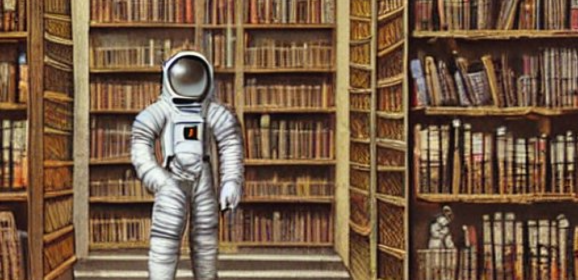
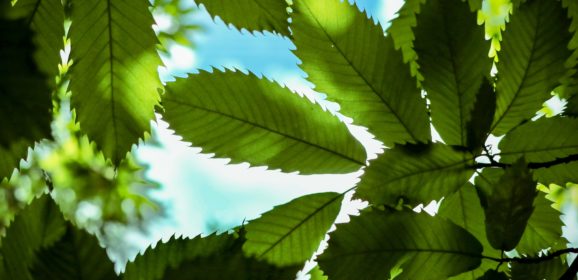
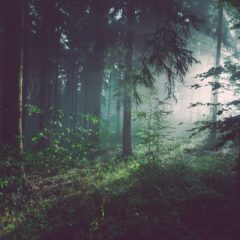
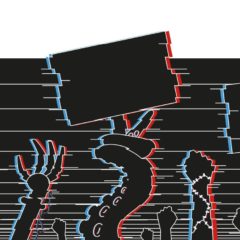
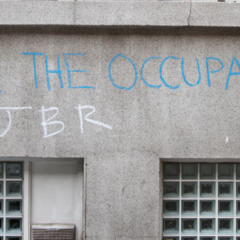
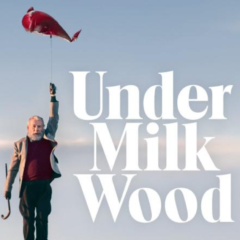

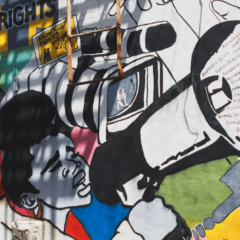
Recent Comments